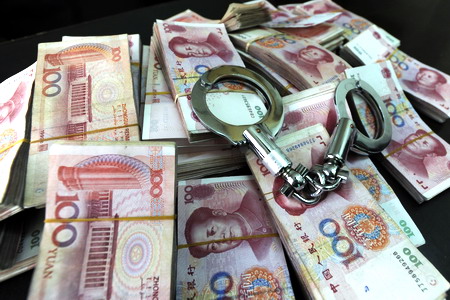Economy
Official calls for laws against international graft
By Wang Jingqiong (China Daily)
Updated: 2010-09-08 13:38
 |
Large Medium Small |
|
 |
|
Multinationals eager to cash in on China's huge market have compromised their ethical codes and adopted the maxim of "When in Rome, do as the Romans do". [Provided to China Daily] |
BEIJING - Bribery involving transnational companies should be included in the Criminal Law when it is next amended, said the Ministry of Supervision.
Kong Xiangren, deputy director of the foreign affairs bureau of the ministry, said the push is based on the fact that more and more Chinese officials and international companies have been found involved in commercial bribery.
According to statistics from the Ministry of Supervision, 69,223 cases of commercial bribery were investigated from August 2005 to December 2009, involving 13,914 civil servants.
"A lot of the cases, especially some cases of transnational business corruption, were first uncovered by the US and European governments, and then they directed our attention to related officials," said Kong during an interview by China Economic Weekly. "This is because most bribery is done very secretively."
"Also we found that more and more corruption and bribery cases were co-committed by officials from different departments," he said.
In the last few years, several renowned multinational companies have been involved in commercial bribery in China, including Wal-Mart, PepsiCo and Siemens.
In March, four employees of Australian mining giant Rio Tinto - including executive Stern Hu, an Australian citizen - were sentenced to seven to 14 years in prison for taking bribes and stealing commercial secrets.
Experts think a major reason that multinational companies can commit commercial bribery is that China has no specific laws supervising and punishing transnational business bribery.
In the current Criminal Law, charges related to commercial bribery include taking or giving bribes, assisting in bribery, and bribing non-government workers, without any specific item on transnational commercial bribery.
"It is very necessary to take measures on transnational commercial bribery," said Fan Chongyi, a law professor from China University of Political Science and Law, who agreed with putting the charge into the Criminal Law.
With the development of a market economy, lots of multinational corporations are springing up across the country, which brings benefits but also nurtures corruption, Fan said.
"As the initiator and the member of the UN Convention Against Corruption, we have the duty to regulate the phenomenon," Fan said, adding that there is no legal basis for handling transnational commercial bribery in China.
Cheng Baoku, a law professor from Nankai University, suggested that a specific law against transnational commercial bribery should be created.
Zhao Jun, director of government and public relations for Ericsson China, told China Economic Weekly that multinational companies should set up internal systems to supervise and prevent commercial bribery, and the government should try to maintain a fair social environment.
"A fair market is especially important to prevent commercial bribery. Once fairness is broken, companies tend to bribe to do business," said Kong.
Cao Yin contributed to this story.




